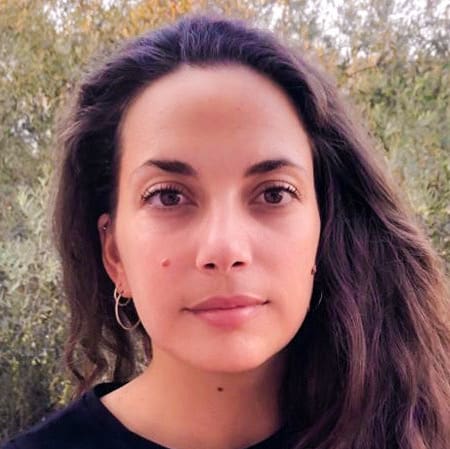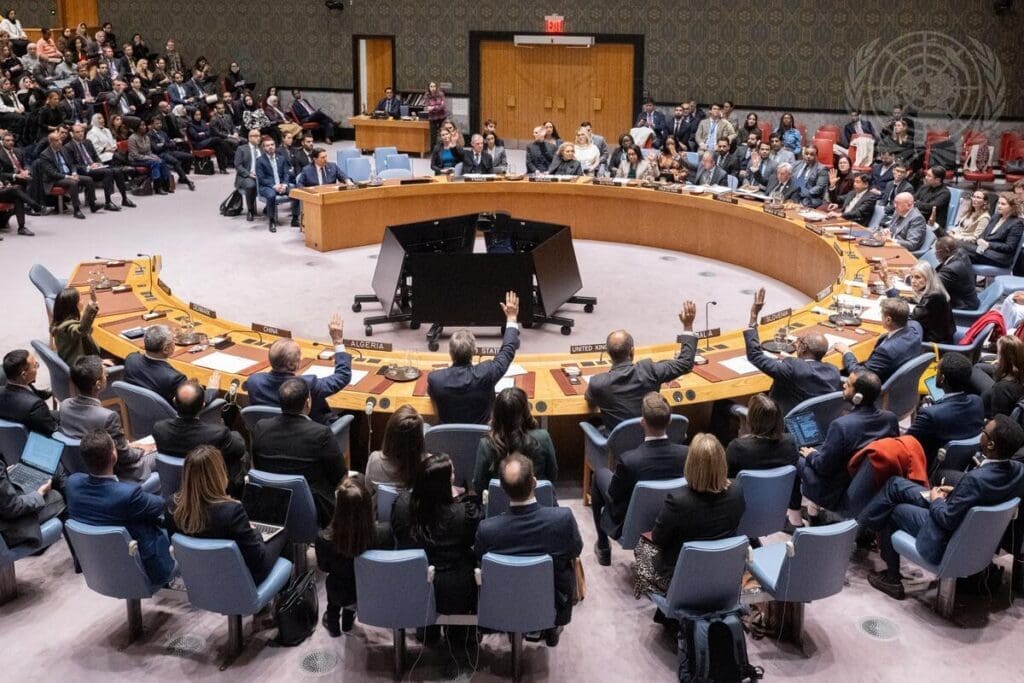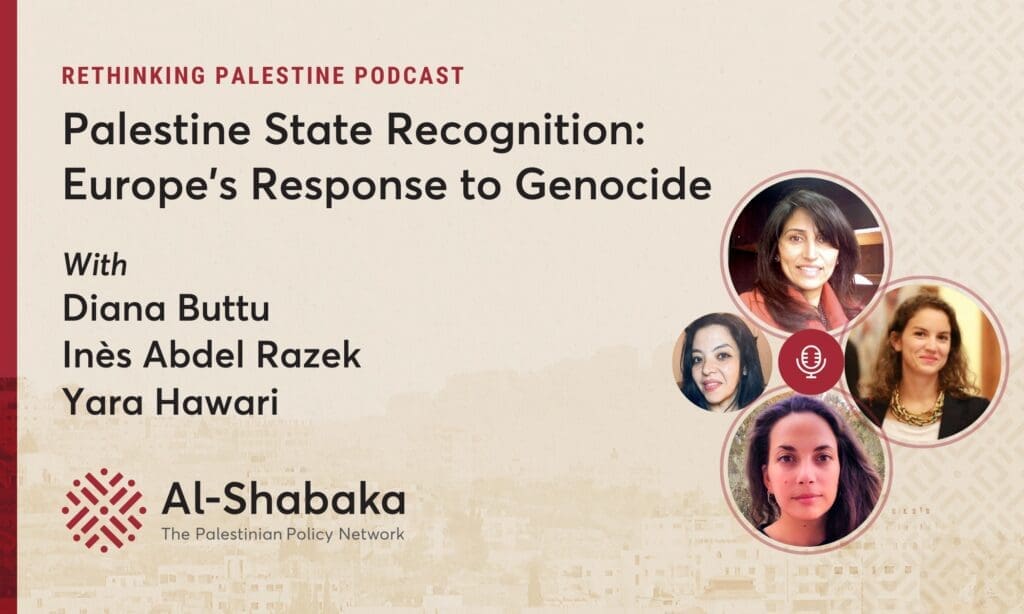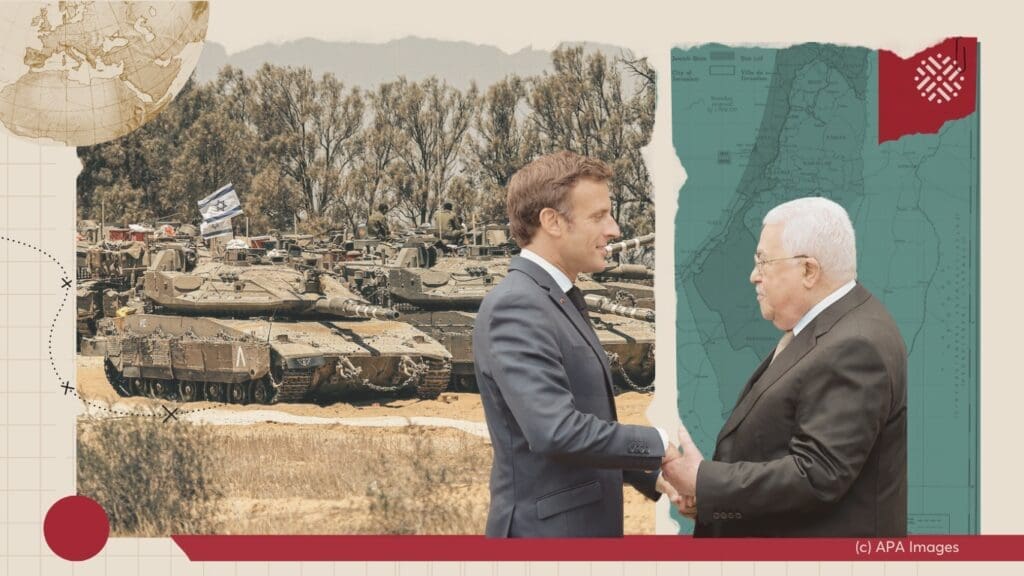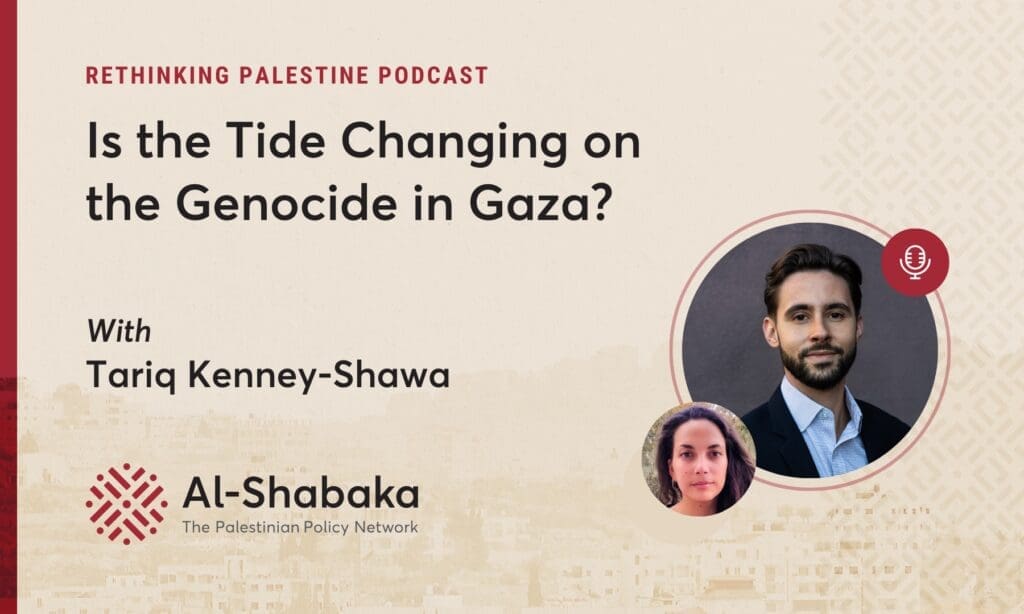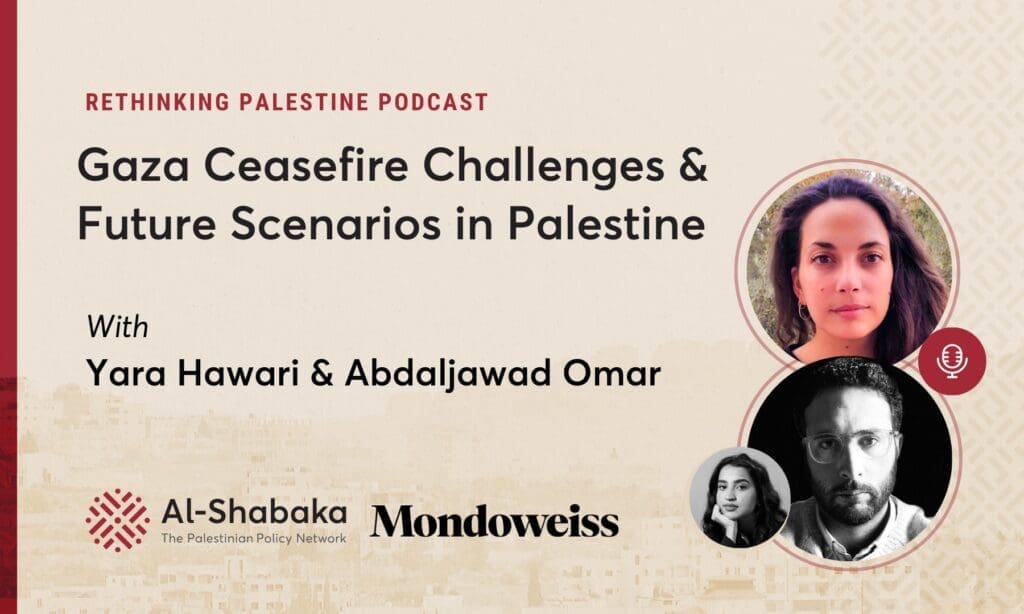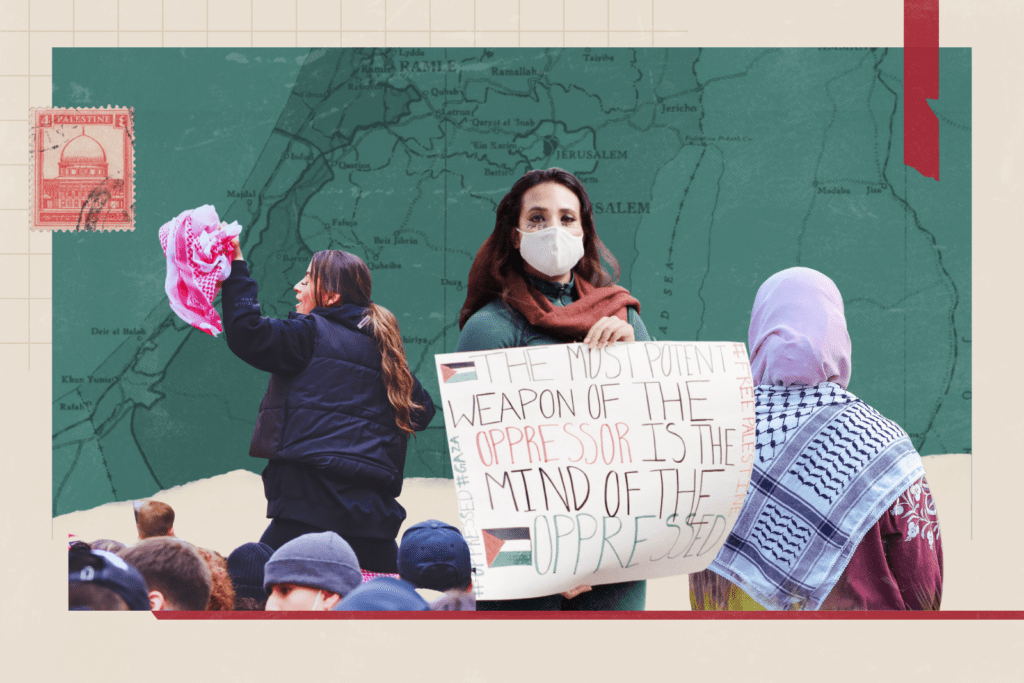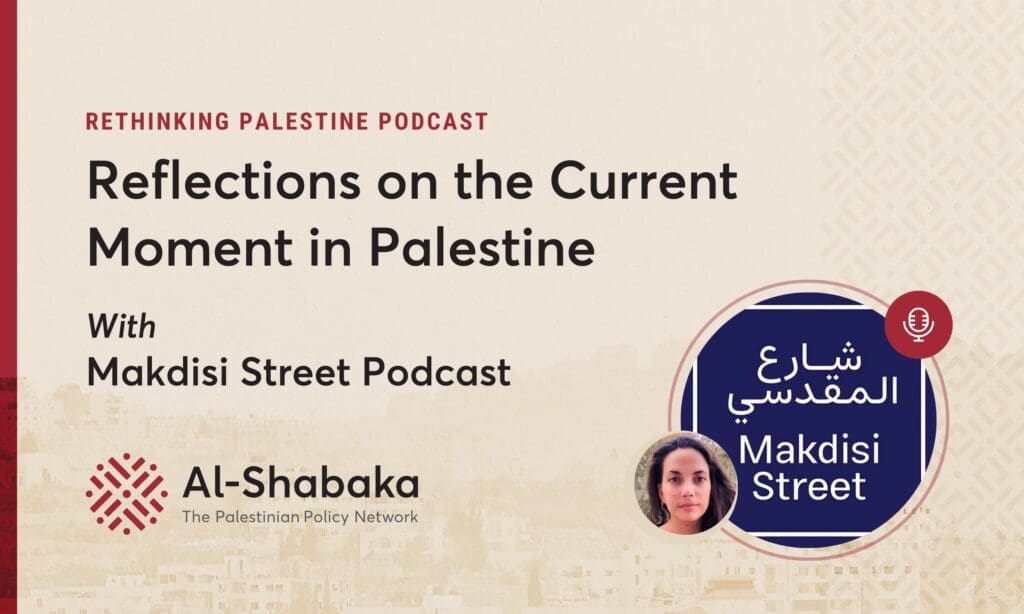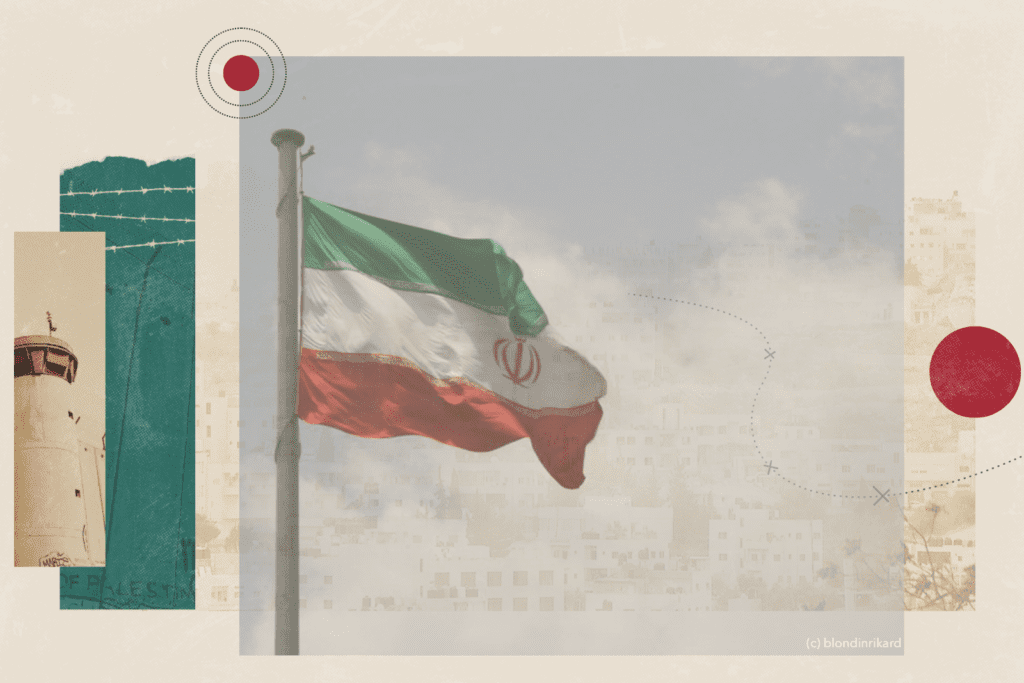Yara Hawari is Al-Shabaka’s co-director. She previously served as the Palestine policy fellow and senior analyst. Yara completed her PhD in Middle East Politics at the University of Exeter, where she taught various undergraduate courses and continues to be an honorary research fellow. In addition to her academic work, which focused on indigenous studies and oral history, she is a frequent political commentator writing for various media outlets including The Guardian, Foreign Policy, and Al Jazeera English.
From this author
The announcement of the National Committee for the Administration of Gaza (NCAG), a 15-member technocratic body chaired by Ali Shaath, signals a shift toward depoliticized governance in Gaza amid ongoing genocide. Shaath, a Palestinian civil engineer and former deputy minister of planning and international cooperation, will lead an interim governing structure tasked with managing reconstruction and service provision under external oversight. While presented as a neutral technocratic governing structure, the NCAG is more likely to function as a managerial apparatus that stabilizes conditions that enable genocide rather than challenging them.
This policy memo argues that technocratic governance in Gaza—particularly under US oversight, given its role as a co-perpetrator in the genocide—should be understood not as a pathway to recovery or sovereignty, but as part of a broader strategy of genocide management.

Yara Hawari· Jan 26, 2026
On November 17, 2025, the UN Security Council passed Resolution 2803 endorsing US President Donald Trump’s twenty-point plan for Gaza. The vote, pushed through after weeks of US pressure, establishes two supposedly “transitional” bodies to take control of Gaza: a Board of Peace tasked with overseeing aid delivery, reconstruction, and day-to-day administration, and an International Stabilization Force to take over security and disarm Hamas.
Notably, the resolution does not refer to the genocide of the past two years, nor does it address accountability for it. Instead, this policy memo shows how the resolution repackages colonial control over the Palestinian people in Gaza, rewards the US—a co-perpetrator of genocide—with control over Gaza and its potentially lucrative reconstruction process, while simultaneously relieving the Israeli regime of all of its responsibilities as an illegally occupying power. Rather than advancing justice, the UN has once again undermined its own legal principles under US pressure.

Yara Hawari· Nov 20, 2025
In this episode, Al-Shabaka policy analysts Diana Buttu, Inès Abdel Razek, and Al-Shabaka’s Co-Director Yara Hawari, are interviewed by Al-Shabaka's commissioning editor Dina Hussein on the recent wave of Palestine State recognition by several European powers as a policy response to the ongoing genocide in Gaza. This podcast episode was originally recorded in June 2025.




+
Since October 2023, Israel’s assault on Gaza has produced one of the most catastrophic humanitarian crises in recent history—an unfolding genocide enabled by world powers and continuing unabated despite the sweeping global solidarity it has sparked. Alongside relentless bombardment and mass displacement, the Israeli regime is waging a deliberate campaign of starvation.
In response to this Israeli-manufactured catastrophe, several European states have begun recognizing or signaling their intent to recognize the State of Palestine. Most recently, France announced its intention to recognize a Palestinian state at the UN General Assembly in September. The UK has stated it will follow suit unless Israel abides by a ceasefire and recommits to a two-state solution. The recent wave of symbolic recognitions that began in 2024 now appears to be the only step many European powers are willing to take in the face of genocide, following nearly two years of moral, material, and diplomatic support for the Israeli regime as well as near-total impunity.
This roundtable conversation with Al Shabaka policy analysts Diana Buttu, Inès Abdel Razek, and Al Shabaka’s co-director, Yara Hawari, asks: Why now? What political or strategic interests are driving this wave of recognition? And what does it mean to recognize a Palestinian state, on paper, while leaving intact the structures of occupation, apartheid, and the genocidal regime that sustains them?



On Thursday, June 19, 2025, Israeli Prime Minister Benjamin Netanyahu stood in front of the aftermath of an Iranian strike near Bir al-Saba’ and told journalists: “It really reminds me of the British people during the Blitz. We are going through a Blitz.” The Blitz refers to the sustained bombing campaign carried out by Nazi Germany against the UK, particularly London, between September 1940 and May 1941. With this dramatic comparison, Netanyahu sought to elicit Western sympathy and secure unconditional support for his government’s latest act of military escalation and violation of international law: the unprovoked bombing of Iran. This rhetorical move is far from new; it has become an enduring trope in Israeli political discourse—one that casts Israel as the perennial victim and frames its opponents as modern-day Nazis.
Netanyahu has long harbored ambitions of striking Iran with direct US support, but timing has always been central. This moment, then, should not be viewed merely as opportunistic aggression, but as part of a broader, calculated strategy. His actions are shaped by a convergence of unprecedented impunity, shifting regional dynamics, and deepening domestic political fragility. This commentary examines the latest escalation in that context and discusses the broader political forces driving it.

Yara Hawari· Jun 26, 2025
Al-Shabaka's US policy fellow, Tariq Kenney-Shawa, joins Co-Director Yara Hawari to examine whether mainstream media and political discourses are shifting their stances on the ongoing genocide in Gaza, and what those changes could mean for potential accountability.


In this episode, Yumna Patel, Yara Hawari, and Abdaljawad Omar discuss the precarious ceasefire and different future scenarios in Gaza and wider Palestine. This is the third and final episode in a collaboration series between Al-Shabaka and Mondoweiss.



After a year of enduring relentless violence and devastation, Palestinians stand at a pivotal moment. In this commentary, Yara Hawari reflects on the immense losses for the Palestinian people since October 2023 and the emerging opportunities to work towards a future free of settler colonial oppression. Hawari argues that now is the time for the movement to shift from a reactive stance to one that defines its own priorities. As part of this transition, she outlines three necessary steps: moving beyond a reliance on international law, deepening connections in the Global South, and dedicating resources to exploring radical visions of a liberated future.

Yara Hawari· Oct 22, 2024
In this episode, our host Yara Hawari joins hosts of the Makdisi Street podcast Saree, Ussama and Karim Makdisi to discuss the ongoing genocide in Gaza, intra Palestinian-Israeli politics and more.

Yara Hawari· Sep 11, 2024
While it remains unclear how and when Israel will respond to Iran’s operation, geopolitics have undoubtedly already shifted. In this roundtable, Al-Shabaka analysts Fadi Quran, Fathi Nimer, Tariq Kenney-Shawa, and Yara Hawari offer insights on the regional impact of Iran’s recent maneuver and situate the ongoing genocide in Gaza within this broader context.




+







